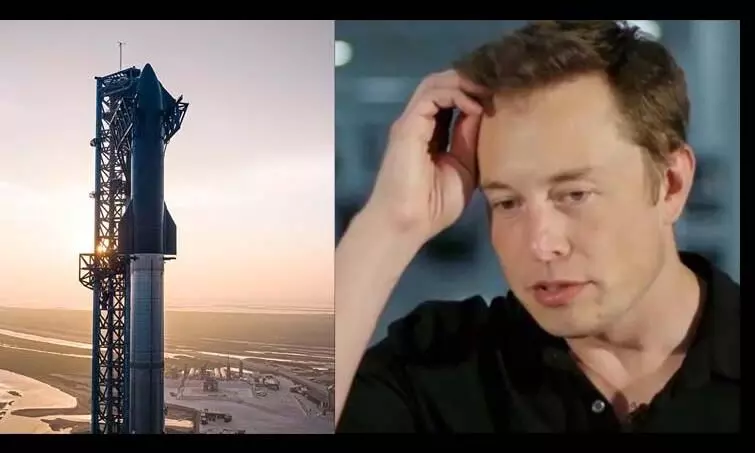
Malfunction: Musk's SpaceX postpones 1st Starship's launch
text_fieldsStarbase/US: Elon Musk's SpaceX postponed the launch of its first test flight of Starship on Monday. Starship is the most powerful rocket ever built to carry astronauts to the Moon, Mars and beyond, Agence France-Presse reported.
The launching of the giant craft was called off minutes before the scheduled time after a pressurization issue was noticed at the booster stage, SpaceX officials informed. They added that the launch would be delayed by around 48 hours.
The craft was scheduled to liftoff at 8:20 am Central Time (1320 GMT) from Starbase, the SpaceX spaceport in Boca Chica, Texas.
NASA, the US space agency, has chosen the Starship spacecraft to carry its astronauts to the Moon in the Artemis III mission planned around late 2025. This will be the first time on Moon after the Apollo programme ended in 1972.
AFP explains that Starship is a 50-meter tall spacecraft and is designed to carry crew and cargo. It is placed atop a 230-foot tall first-stage Super Heavy booster rocket. Both are made of stainless steel and designed to be fully and rapidly reusable, and both are powered by SpaceX's next-gen Raptor engine -- 33 for Super Heavy and six for Starship. Musk recently said that there is only a 50 per cent chance that the first-ever orbital mission of SpaceX's huge Starship vehicle will be a success.
But he also stressed that SpaceX is building multiple Starship vehicles at the South Texas site.
These will be launched in relatively quick succession over the coming months, and there's about an 80 per cent chance one of them will reach orbit this year.






















